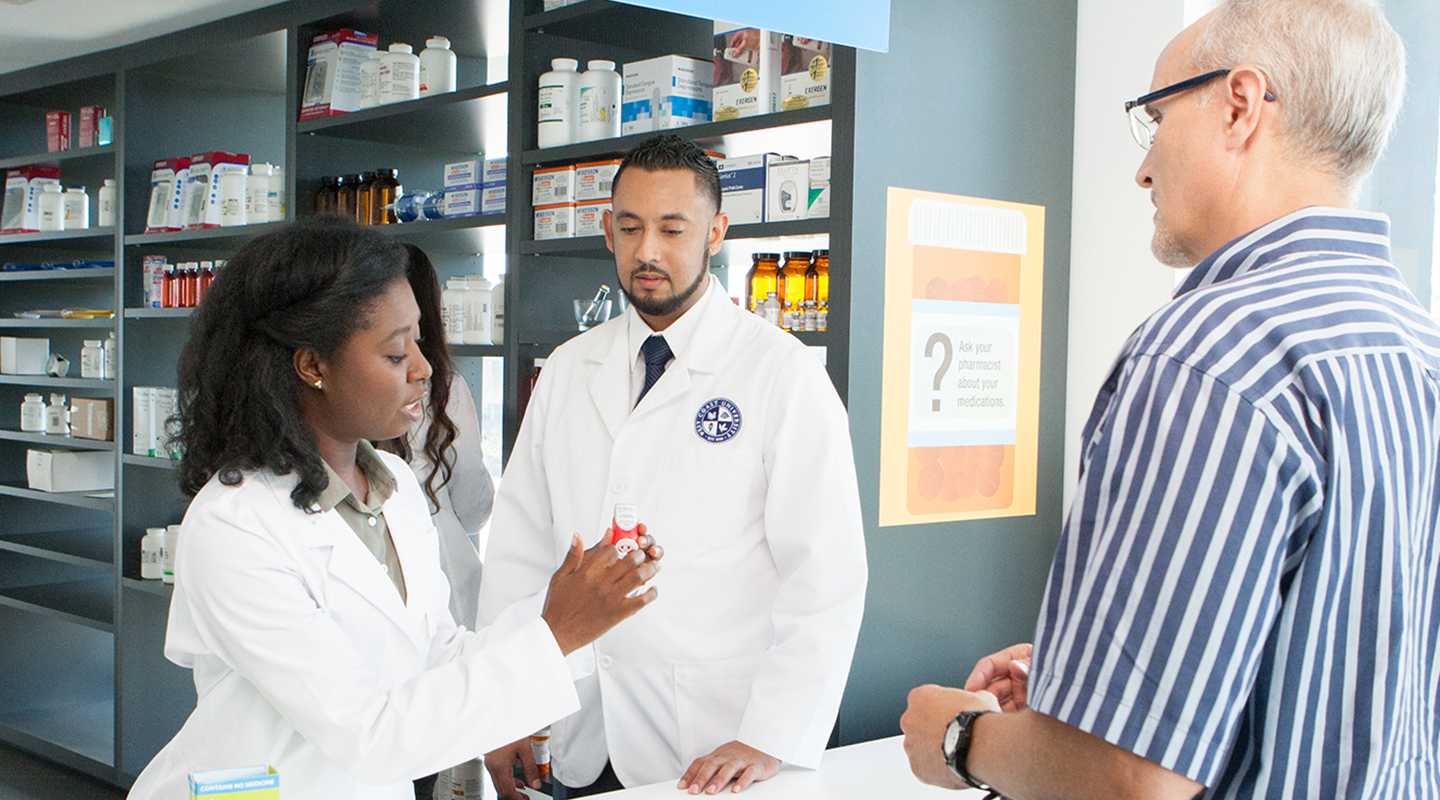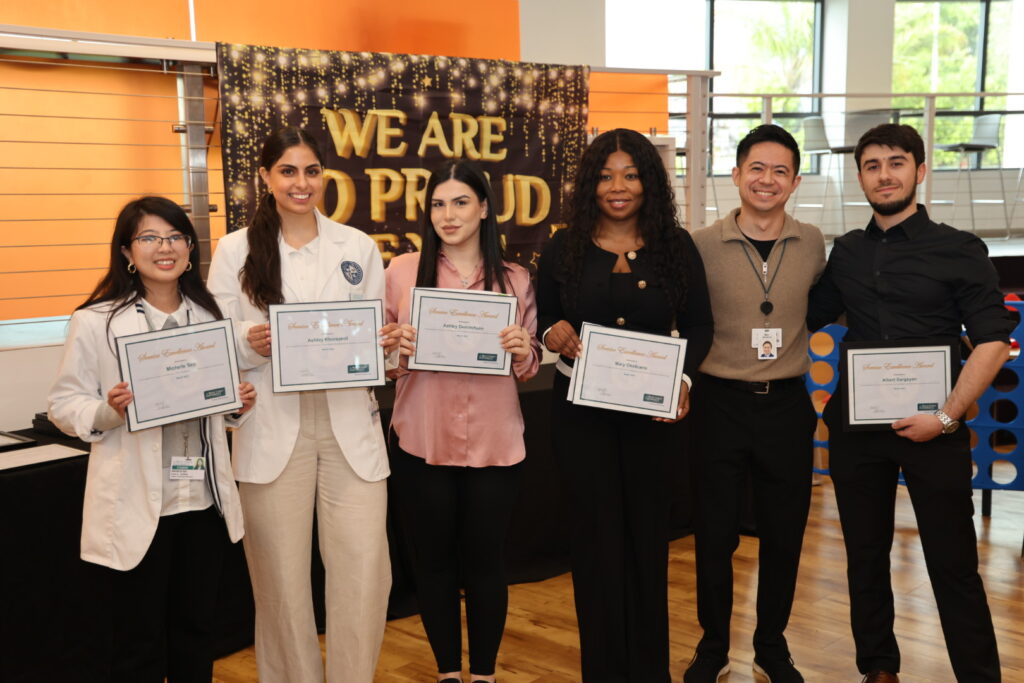The origins of pharmacy, and apothecary, are as fascinating as they are ancient. Histories and legend of medicinal substances, and of their cultivators and dispensers, appear at least as far back as ancient Greece and Rome in the Middle Ages. Its beginnings were found elsewhere, too, in diverse geographies: in Egypt, around the same time, physicians were also priests, responsible for administering spiritual care as well as the prepared pharmaceutical remedies.
The history of modern, clinical pharmacy education is a relatively recent one. The first dedicated PharmD program was offered in 1950 in Southern California as the movement toward a clinical profession separate from physical care delivery took hold. If you choose to pursue a PharmD degree, you’ll join a long and storied legacy of medicinal discipline that continues to evolve and revolutionize healthcare.
Table of Contents
Job Duties and Description
Can a PharmD Treat Patients?
While pharmacists aren’t a substitute for a primary care physician or specialist, they increasingly deliver what is known as medication therapy management (MTM). In this regard, a Doctor of Pharmacy can act as one-on-one patient educator to help them understand their disease, adjust medications, or provide specialist referrals. In particular, a patient with diabetes may have an ongoing, interactive treatment relationship with their pharmacist.
Pharmacists also have a limited authority to prescribe certain medications. This authority is defined on a state-by-state level. Additionally, the FDA authorized pharmacists nationwide to prescribe Paxlovid for eligible COVID-19 patients as of July 6, 2022.
What Does a Day in the Life of a Pharmacist Look Like?
The workday of a Doctor of Pharmacy depends both on your particular place of work (community pharmacy, hospital, etc.) and the wide variety of patients you interact with each day.
A community pharmacist’s day-in-the-life, for example, might begin with preparation for the day and catching up on administrative duties. After that, the pharmacist will likely prep prescriptions as they come in (with the help of technicians) and interact with patients to advise on medication safety, dosage, interactions, and side effects.
Some patients may seek help with over-the-counter treatment options. Others might visit on a regular basis for their pharmacist’s expertise in managing and adjusting medications for ongoing illnesses such as diabetes. Some of these patient interactions may involve consultations in a private area, if your facility is equipped with one.
You’ll also be in contact with physicians and their office staff throughout a typical day. As the day closes out, the pharmacist may complete medicine use reviews (MURs) or drug utilization reviews (DURs).
Job Placements
Where Do Clinical Pharmacists Work?
Curious what you can do with a PharmD degree? Clinical pharmacists have the opportunity to work in a wide range of placements. As cited in Pharmacy Times, this includes:
- Chain or independent pharmacies
- Pharmaceutical industry
- Hospital pharmacies
- Clinical pharmacies
- Consulting pharmacist
- Managed care
- Academia/teaching
- Nuclear pharmacy
- Government
- Travel pharmacist
Where you place as a pharmacist may depend on whether you’ve chosen to pursue a specialization. For example, a pharmacist with a specialization in compounding sterile preparation may be more likely to work in an independent pharmacy that specializes in compounded prescriptions.
In addition to the above, some less common placements are available to pharmacists, like informatics and veterinary pharmacy.
How Do I Become a Travel Pharmacist?
If you want to take your pharmacy practice mobile, the requirements are generally the same as for any pharmacy position: a Doctor of Pharmacy degree and licensure in your state. Be sure to check if your state has any additional requirements.
Degree Requirements
How Long Does It Take to Become a Pharmacist?
Completing a Doctor of Pharmacy degree is typically a four-year program. However, West Coast University’s PharmD program in Los Angeles (a hybrid program that combines in-person and online learning experiences) can be completed in less than three years with a minimum completion time of 33 months.* Consider that you’ll also need an undergraduate degree in order to apply as a graduate student.
If you choose to add a specialty to your Doctor of Pharmacy, you’ll need to complete additional training, such as a residency or fellowship. You can also become a board-certified specialist with additional testing.
(Note: WCU’s PharmD program is based out of our Center for Graduate Studies in Los Angeles, but we have students who come from all over California – not just those who are local to the area.)
*Pending approval by the Accreditation Council for Pharmacy Education
What Is the Difference Between a PharmD and a PhD?
Doctor of Pharmacy (PharmD) programs are designed for students who want to pursue careers as practicing pharmacists. Meanwhile, PhD programs in areas of study such as pharmacology, pharmaceutical sciences, and medicinal chemistry are designed for students interested in careers in academics or research.
What Can Pharmacists Specialize In?
Licensed pharmacists can choose a specialization in a number of pharmaceutical focuses, including:
- Ambulatory/primary care
- Cardiology
- Compounding sterile preparation
- Critical care
- Emergency medicine
- Geriatric pharmacy
- Infectious diseases
- Nuclear pharmacy
- Nutrition support
- Oncology
- Pediatrics
- Pharmacotherapy
- Psychiatric/behavioral health
- Solid organ transplantation
These specializations can be accomplished through continued study, and licensure through the Board of Pharmacy Specialties® (BPS).
What Subjects Are Covered in a PharmD Program?
Depending on your school and program, your precise curriculum will vary but will include both MSN and APRN core subjects. We invite you to view the West Coast University PharmD Curriculum (page 42) for a detailed look at what your PharmD education will include. You can expect your education to touch upon the topics below:
- Pharmaceutics
- Biosystems
- Pharmaceutical practice
- Drug action principles
- Pharmacokinetics
- Public health
- Cardiopulmonary and renal
- Endocrinology
- Nutrition
- Neurology and psychiatry
- Infectious diseases
- Pharmacoeconomics
- Pharmacy law and ethics
- Immunology
- Hematology
- Oncology
- Experiential education (acute, hospital, community, ambulatory)
These disciplines and subjects will be taught in the classroom, labs, simulations, and practice experience. Your studies will also include professional electives and capstone skills.
What Is Pharmaceutical Math?
Pharmaceutical mathematics is a core competency of pharmacy practice, which combines mathematics with chemical equations. Pharmacists must be able to dispense medications with a great deal of accuracy to ensure safety of the patient, so this is a rigorous educational imperative of any PharmD program.
What Is the NAPLEX® Exam?
The North American Pharmacist Licensure Examination® (NAPLEX®) is one of the licensure requirements you’re required to complete after graduation from a PharmD program, before you are allowed to practice.
Steps for Taking the NAPLEX® Exam:
- Familiarize yourself with the Candidate Application Bulletin and learn your state licensure requirements.
- Create a National Association of Boards of Pharmacy (NABP) e-profile.
- Make sure you meet all requirements to take the exam and apply for eligibility.
- Submit your college of pharmacy transcripts.
- Complete the purchase of your exam once you receive notice of approval of eligibility. (You will be able to do this through your NABP e-profile.)
- Receive your Authorization to Test (ATT).
- Schedule your test through Pearson VUE.
Special Accomodations: If eligible, you can apply for an Armed Forces Discount for the exam, or request ADA accommodations.
For more detailed information on the NAPLEX, what type of questions to expect, test prep options, test day, and results, visit the West Coast University Guide to the NAPLEX post.
Next Steps
A career in pharmacy is unique, combining the delicate science of medication dispensing with a highly interpersonal role in patient health. You can learn more about the West Coast University hybrid PharmD program today today, to discover if this might be a rewarding career path for you.
WCU provides career guidance and assistance but cannot guarantee employment. The views and opinions expressed are those of the individuals and do not necessarily reflect the beliefs or position of the school or of any instructor or student.



